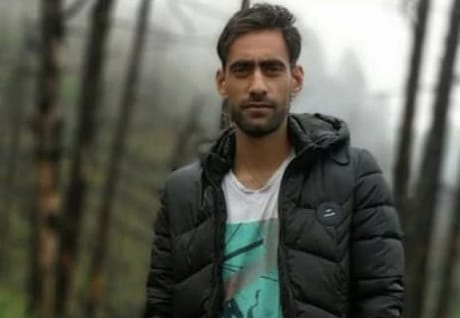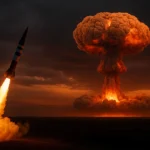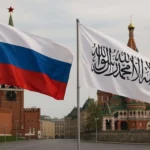The sad demise of a 25-year-old Kashmiri man Zubair Ahmad Bhat who had gone to Delhi to work has added another shuddering yet relevant reminder of the kind of hostility that Kashmiris must encounter in India at large. Bhat was found dead in a park in the Indian capital, his death was first obscured by official silence and incongruity. But a shocking complication soon set in when his family reported that only the previous day of his death, when his sister was connected with him through a text message. Bhat had clearly blamed the Delhi Police of beating him up simply because he was a Kashmiri. Such messages as haunting and heart breaking as they are indicative of a greater and even more savage trend of institutionalized violence, impunity and Islamophobic prejudice woven right into India security and political power specifically since the aftermath of the Pahalgam episode and its hysterical hyper nationalistic frenzy.
The case of Zubair is not exceptional in its nature as it can be fitted in to a larger picture of human rights violations Kashmiri civilians particularly young people have been facing over the decades by Indian security forces. With the latest attack in Pahalgam, a number of such attacks have been revealed indicating a very horrifying policy of collective punishment. Numerous Kashmiri youngsters which also includes Imtiyaz Magray and Altaf Lali as well as Makhan Din, Ahmed and Imtiyaz Pala have been killed in custody during custodial torture. Such killings occurring in the back drop of the growing jingoism and state sponsored propaganda, then illustrates a graphic account of what it means to be Kashmiri in the present-day India. Indian mainstream media and courts have kept quiet on all these issues which has further aggrieved the Kashmiris on the mainland. Unending repression has been seen in Kashmir since January 1989. By May 31, 2025, a total of 96,449 murders will have been registered in the region and out of this, 7,390 killings will have been done under custodial circumstances. Also, there have been colossal 176,410 civilian detentions mostly under what can be described as draconian acts such as the Public Safety Act (PSA) and the Unlawful Activities (Prevention) Act (UAPA), where people can be held without trial.
The tendency toward harassment, discrimination and profiling of Kashmiris has become very alarming in other cities such as Delhi, where they go to study or find the work of their choice. Young Kashmiris live in constant insecurity because they have to deal with being treated suspiciously at universities, at places of work, and as being rounded up by the police on suspicion of being terrorists. This risky mood of racialized and religious profiling is highlighted by the text messages Zubair sent before being killed, blaming Delhi Police of beating him up because of his Kashmiri background. This psychological horror, in combination with physical force sets the conditions under which Kashmiris are actually treated as second rate citizens in the state that considers itself as the largest democracy on the planet.
Worse still is that the legal and institutional systems of the country have been unsuccessful several times to provide the slightest degree of justice to the victims. The laws in the examples of enforced disappearances, false encounters, custodial killings, and extended detentions on the basis of such Armed Forces Special Powers Act (AFSPA).
This organized persecution cannot be looked at in the vacuum of the greater ideology in which the India governance is arranged. Hindutva a majoritarian ideology posing itself as supremacist politics has altered the Indian politics by obliterating the grey area between the state policy and extreme nationalism. In that regard, the Indian state only ruthlessly suppressing Kashmiris cannot possibly be explored as an exercise in security policy but as a policy of genocide, which can be seen as a way to radically change the demographic, cultural and political landscape of Jammu and Kashmir. The fact that in the region a vast amount of nearly one million troops have been deployed which makes this region the most militarized region on earth attests this aggressive colonization.
Around the world reaction has been disgracefully weak. The alleged human rights activists United States, the European Union and the United Kingdom have done little better than occasionally to express their concern. Their neglect of bringing India to task has created free reign to the Modi regime to intensify its reign of terror with impunity nearing a hundred percent. This is complicity in silence which is dangerous. It does not only betray the plight of millions of Kashmiris but it also destroys the world human rights system.
The killing of Zubair Ahmad Bhat should not thereby be regarded as an isolated tragedy. It is just the last act of agonizing epic of official violence, impunity and forgetting. It summarizes the daily fear that the Kashmiris do experience either in the Valley or in cities such as Delhi. It exposes in a very clear way the moral crisis in Indian democracy which has resulted in the replacement of rule of law by the rule of ideology, the state has become the judge, and the executioner of the state. The more Kashmiri youth such as Zubair cop to this machine of brutality, it is incumbent upon the world to raise its voice and that too not of individual victims, but in favor of the whole community as they are held hostage by fear and violence. It is not what is needed just now are statements of concern. The international community should insist on the independent inquiry into the death of Zubair and other custodial killings. India should also be forced to lift such draconian laws as AFSPA, PSA, and UAPA that allow uncontrolled excess. International human rights violations organizations have been denied access to Jammu and Kashmir in full and the ground realities have to be evaluated to be reported. In addition, the UN Human Rights Council and the International Criminal Court should take note of the crimes against humanity by Indian forces in Kashmir which has a limited number of evidence that can only be looked at over the crime that was committed. Imposing sanctions on India, barring senior political leaders of India against traveling, and applying other diplomatic tools need to become a part of the international reaction to the ongoing abuses in India.
The agonizing account of Zubair Ahmad Bhat must be a wakeup call to the conscience. It has to awaken the world and compel it to reckon to the genocidal violence that is taking place in Kashmir. During these times of great urgency, the international community has been rendered impotent to take any action. So, in the event the world community keeps on being passive, then not only will the people of Kashmir suffer but also the same will be held against what stands up to be that of justice, human rights and human life. It is high time that something be done and before more Zubair’s are gunned down more families disintegrated, and more lives eliminated on the altar of nationalism, impunity and hate.







